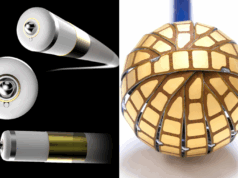
On 2 May, St Jude Medical announced first enrolment of its MultiPoint Pacing clinical study to build upon its first- to-market Quadripolar Pacing System. Patients will be implanted with the Quadra Assura MP cardiac resynchronisation therapy defibrillator (CRT-D) and Quartet lead to assess pacing in multiple locations in the heart.
The study will evaluate outcome benefits such as improved haemodynamics and cardiac function in heart failure patients who receive cardiac resynchronisation therapy (CRT). MultiPoint Pacing provides the ability to deliver two left ventricular (LV) pacing pulses, either simultaneously or sequentially, rather than the standard single pulse for each pacing cycle (heartbeat). This may be beneficial in further increasing the responder rates to CRT because it may capture a larger area of the cardiac anatomy by engaging areas around already damaged tissue.
“The MultiPoint Pacing trial is a study of patients who may not receive benefit or are unresponsive to standard CRT single-point pacing. We are evaluating whether multipoint pacing can increase the potential for a successful CRT outcome by pacing in multiple locations in the heart,” said Gery Tomassoni, director of electrophysiology at Baptist Health Lexington in Lexing, USA.
The prospective, randomised, double-blind, multicentre clinical study will enrol more than 500 patients at 50 centres in the USA. Implanted patients will receive the single pacing pulse available with the existing quadripolar systems for the first three months. After three months, patients will be classified as being responders or non-responders to single-point CRT pacing and then will be randomised to either a single or multipoint pacing group. Patients will be monitored for an additional six months, at which time responder rates will be compared between patients receiving MultiPoint Pacing and single point pacing.
“The Quadra Assura MP device builds upon the robust platform available with the current St Jude Medical quadripolar technology and provides additional tools that may improve the CRT responder rate even further,” said Mark Carlson, chief medical officer and senior vice president of research and clinical affairs for the St Jude Medical Implantable Electronic Systems Division. “This study represents our commitment to investing in product innovation and clinical evidence to ensure an increasing number of patients continue to respond to, and appropriately benefit from, CRT.”









